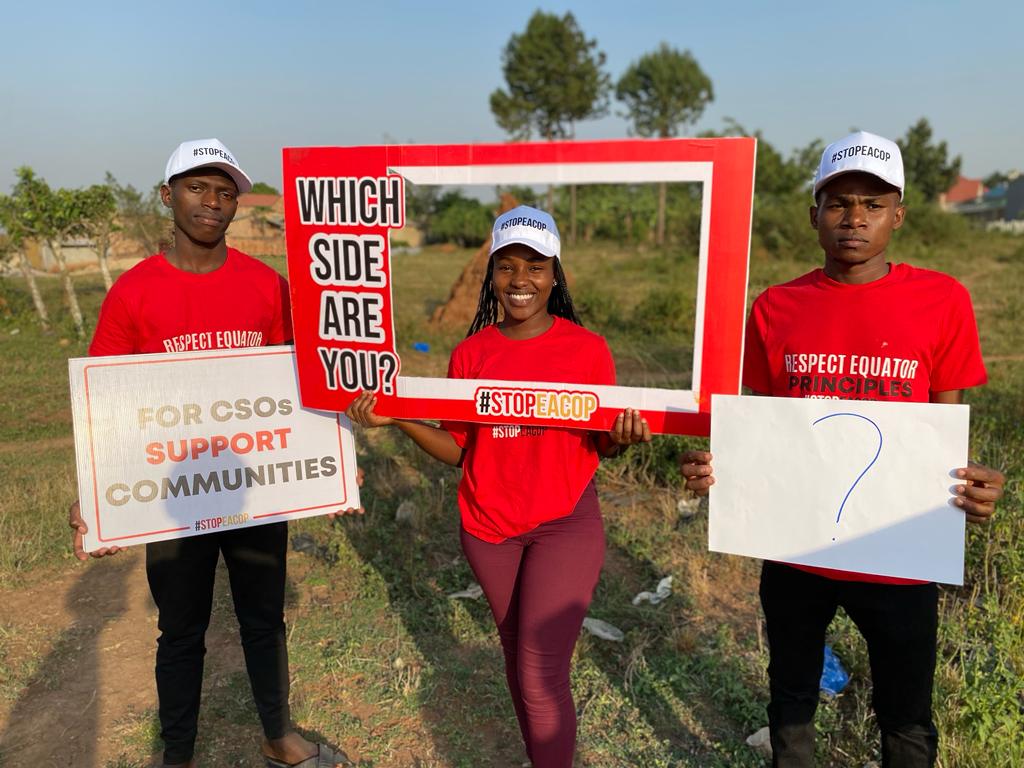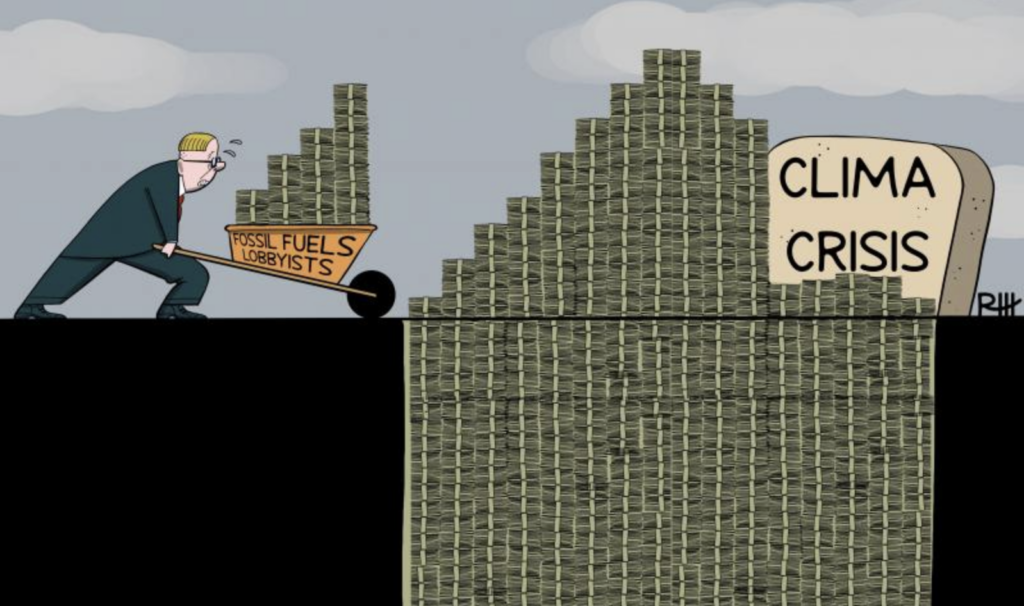The African Cup of Nations (AFCON) — Africa’s landmark football tournament — is heading into the quarter finals in Cote D’Ivoire.
As promised, the tournament has celebrated the diversity of African football and cultures. The atmospheres have been electric, and fans have travelled from every corner of the continent to celebrate its most popular sport.
Attention, however, has been drawn to matters off the pitch: namely, TotalEnergies’ headline sponsorship of the tournament. Football fans, campaigners, and civil society from Africa and beyond have all decried this egregious act of sportswashing by the French major, the top oil and gas extractor in Africa.
Our Kick Total Out of AFCON campaign is challenging the fossil fuel giant’s sponsorship of AFCON, demanding it end new drilling on the continent and invest seriously in renewables.
Despite the glitzy adverts and misleading green claims, TotalEnergies is doubling down on fossil fuel production globally, and especially in Africa. The company is on track to be one of the biggest expanders of fossil fuel production through to 2030. TotalEnergies’ sponsorship of the tournament is a blatant attempt to distract from their polluting practices across Africa.
Mega-Projects
The company’s plans fly in the face of expert opinion and climate science, which emphatically states that no new fossil fuel projects are compatible with keeping temperatures from breaching the 1.5 degrees Celsius goal enshrined in the Paris climate agreement.TotalEnergies is betting on a future that is completely inhospitable for Africans.
Across the continent, TotalEnergies is involved in several mega-projects that will lock-in emissions and pollution for decades to come. For example, TotalEnergies’ East African Crude Oil Pipeline (EACOP) in Uganda and Tanzania will displace more than 100,000 people; has caused food insecurity; caused children to leave school, and is likely to have devastating consequences on the environment.
TotalEnergies is also present in northern Mozambique, where a $20 billion natural gas project has exacerbated the conflict in an already unstable region. Local residents claim that the majority of jobs created in the region have gone to internationals or Mozambicans who hail from the economically advantaged South of the country, worsening already stark regional inequalities.
Africa is already feeling the impacts of the climate crisis — a crisis that is caused by burning TotalEnergies’ fossil fuels. The drought gripping the Horn of Africa, the worst in 40 years, would not have happened without human-induced climate change. Forced migrations and food insecurity due to climate impacts are increasing throughout Africa.
If TotalEnergies’ expansion plans go ahead, and the world remains hooked on fossil fuels, Africa’s future looks extremely precarious.
Kick Polluters Out
The vulnerability of Africa is undeserved and deeply unjust. Our continent is responsible for just four percent of annual global emissions, despite being home to nearly a fifth of humanity, with the population growing rapidly.
Our economies are set to suffer massively due to the climate crisis. One study found that with a 2.7C temperature rise — the course current policies have put the world on — African economies can expect a 20 percent average reduction in economic growth rates by 2050, and a massive 64 percent reduction by 2100.
TotalEnergies may portray itself as investing in Africa, developing its economies and serving African customers — but the reality couldn’t be further from the truth. TotalEnergies is profiting from our future losses; extracting wealth from under our feet, and leaving us to face the consequences.
Given these hard facts, Africa’s largest celebration of football kicking off under the banner of a company that is jeopardising the continent’s future is wrong. The Confederation of African Football (CAF), the tournament organisers, must reconsider its partnership in light of the message it sends to Africans.
Kick Polluters Out is calling on CAF to ditch big polluters like TotalEnergies who don’t deserve to be associated with the world’s beautiful game. CAF can stop companies like TotalEnergies using our sporting events and the culture around them to improve their reputations.
As Africans, all we are asking is to be able to leave behind a just, thriving and green continent to future generations. The spectacle of AFCON is an opportunity to promote the possibilities and solutions that will enable Africa to leapfrog fossil fuel use altogether. Instead it glorifies a company that threatens the future of our people, our continent, and our most loved sport. It’s time we showed TotalEnergies the red card.
Samm Farai Monro is Kick Polluters Out Co-Founder & Magamba Network Creative Director.
Kick Polluters Out is a movement of African creatives fighting against sportswashing and greenwashing by Big Polluters. The campaign is convened by creative and digital media organisation, Magamba Network (Zimbabwe) with an East Africa content hub run by Buni Media (Kenya), and West Africa work covered by Journal Rappé (Senegal). The campaign is being run in partnership with Greenpeace Africa and allies across the continent. Find out more here.
Subscribe to our newsletter
Stay up to date with DeSmog news and alerts







